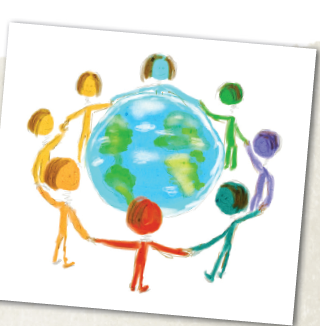Friendship in many cultures
Germans form friendship early in life and like Mexican friends, German friends usually become part of each other’s family life. A study shows that, young Germans who come to the United States often have difficulty making friends with Americans, whose friendships are less permanent. American friendships fade “as people move, change their jobs, marry, or discover new interests.”
The same study describes a different model in British friendships, which usually stay outside the family. These friendships are usually based on shared activity. Although British friends may not be as deeply connected to each other as German friends, their friendships can survive after a long separation. For the British, friends who meet after a long separation are like a couple who begin to dance again when the orchestra starts playing after a pause.
Studies on American friendships indicate that, like the French and British, people in the United States often form friendships around interests. They have friends who enjoy sports, friends who go shopping with them, and friends who share a hobby. And, like the Germans or Russians, some also form long-lasting friendships which are based on feelings. In fact, the variety of relationships that come under Americans’ definition of friendship can confuse people from other cultures, especially when Americans say things like, “I just made a new friend yesterday.”
Nevertheless, the term does not seem to confuse Americans, who know very well the difference between friends and acquaintances. According to a survey in Psychology Today, those who answered the survey “find it easy to distinguish between close and casual friends and reported they have more close friends than casual ones.”
Although different people and cultures emphasize different aspects of friendship, there’s one element which is always present, and that is the element of choice. We may not be able to select our families, our co-workers, or even the people that ride the bus with us, but we can pick our friends. As Mead puts it, “a friend is someone who chooses and is chosen.” It’s this freedom choice that makes friendship such a special and unique relationship.
Taken and adapted from: Focus on Grammar 4 (Pearson-Longman)

